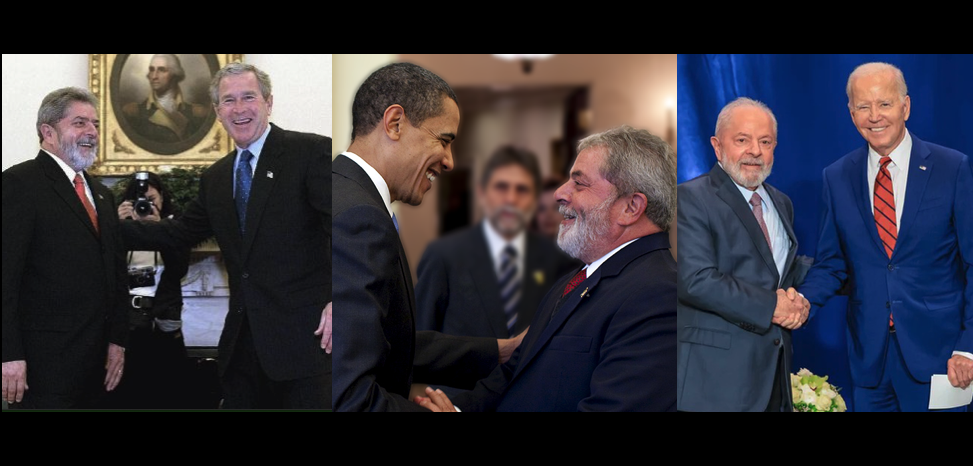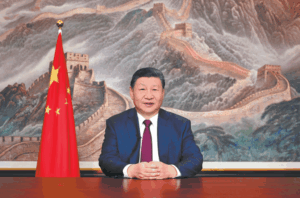
Published 07/18/2024 09:20
Different agencies of the United States government monitored President Luiz Inácio Lula da Silva over several decades, producing at least 819 documents totaling 3,300 pages of records. This information was provided by the American government to journalist and writer Fernando Morais, the president’s biographer, according to a report by S. Paulo Newspaper. The data refer to the period from 1966 to 2019, the year in which the requests were filed.
Most of the documents were produced by the CIA, the main US intelligence agency, which holds 613 documents on Lula, totaling 2,000 pages. The records include details about Lula’s relationship with former President Dilma Rousseff, authorities in the Middle East and China, as well as Brazilian military plans and Petrobras’ production. The documents cover five decades, from the military dictatorship, when Lula rose through the ranks of the labor movement, until shortly after his arrest in 2018.
However, Morais has not yet had access to the entirety of the documents, and there are no records in the archive relating to Lula’s current term, which began in 2023. The writer had the help of the law firm Pogust Goodhead to demand the information from all US agencies, through the American Freedom of Information Act. The first data arrived recently, through the Department of Defense.
“The president was still in prison when he obtained powers of attorney to put all the existing records in the agencies in his name. There are agencies that, obviously, had nothing, like the one that deals with the illegal entry of food. But I asked for them all,” said Morais.
Morais, who released the first volume of Lula’s biography in 2021 and is now working on the second volume, requested reports, surveys, emails, letters, meeting minutes, telephone records and other documents produced by American intelligence agencies.
“It is necessary to shed light on the relationship between the two largest countries in the Americas. This is a right of our client Fernando Morais and of all Brazilians. We are confident that the US authorities will comply with our request,” said Tom Goodhead, global managing partner of Pogust Goodhead.
Wikileaks and phone tapping
Although the documents cover the period from 1966 onwards, there is still no information on when the first record related to Lula would be in US agencies. So far, 613 documents have been found from the CIA, 111 from the State Department, 49 from the Defense Intelligence Agency, 27 from the Department of Defense, 8 from the United States Army South and 1 from the Army Cyber Command. The group is still waiting for a response from the FBI, the NSA and the Financial Crimes Enforcement Network (FinCEN). The deadline is 20 business days, extendable by another 20, to inform whether or not they will provide the data.
Morais, who worked with American data for the book “Olga”, released in 1985, said that the American government vetoes passages that it considers to pose risks to state security.
“We know that the US government has closely analyzed the Brazilian political scene in recent decades, and Lula is one of the most remarkable and important characters in the history of Latin America,” said the writer.
Once the material is complete, it will need to be retrieved in the United States in physical format. In 2013, the TV Globo program Fantástico reported that then-president Dilma was the target of NSA espionage. Secret documents, based on allegations uncovered by journalist Glenn Greenwald with former agency technician Edward Snowden, revealed new espionage against Dilma, her advisors and ministers in 2015, through the WikiLeaks portal. In total, 29 phones of members and former members of the government were tapped at the beginning of Dilma’s first term by the American agency.
Morais’ expectation with the requests to the United States is that the information can be used in the second part of Lula’s biography, which still has no release date.
“They took a long time, and since I ordered a large quantity, they felt they had the right to delay it. So much so that my idea was for the material to be included in volume 1 of the book, but they didn’t send it. It will be included in volume 2, then,” he added.
The first volume, entitled “Lula,” has been translated into Chinese, English, and Spanish. The draft of the request for information began in 1966, when Lula started working as a lathe operator in a factory in the ABC region of São Paulo, beginning his involvement with trade unionism and marking his entry into Brazilian politics. Lula would later become president of the Metalworkers’ Union of São Bernardo do Campo and Diadema in 1975, leading strikes three years later and helping to found the PT, becoming the party’s first president.
Source: vermelho.org.br

